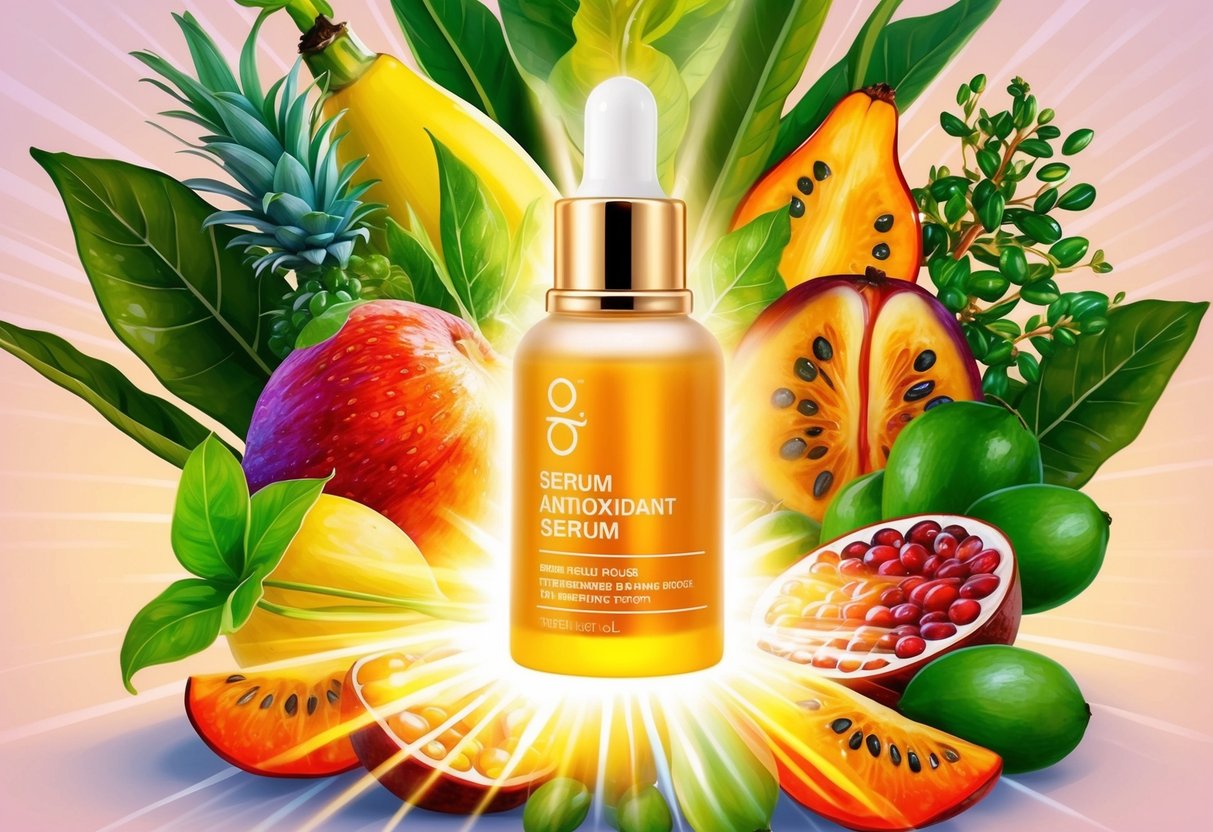10 Beauty Secrets Dermatologists Wish You Knew for Glowing, Healthy Skin
The Role of Collagen and Peptides
Collagen loss is a key contributor to wrinkle formation. As collagen levels naturally decrease with age, skin loses firmness and elasticity, making wrinkles more noticeable.
Supporting collagen is a central goal in anti-aging skincare. Topical peptides help signal the skin to produce more collagen and elastin.
By including peptides in daily routines, users may notice firmer, plumper skin and a reduction in the appearance of fine lines. Some peptide serums are combined with amino acids or hyaluronic acid, maximizing hydration and support for the skin barrier.
Hydration alone cannot replace lost collagen, but it does help minimize the look of fine lines and maintain smoothness. Products blending peptides, antioxidants, and humectants can optimize collagen support and address multiple aging concerns at once.
Addressing Crow’s Feet and Eye Area Concerns
The eye area is especially prone to early signs of aging, such as crow’s feet and fine lines, due to thinner skin and constant movement from blinking and facial expressions. Specialized eye creams formulated with peptides, hyaluronic acid, or caffeine target these issues by both tightening the skin and reducing the appearance of puffiness.
Retinol-infused eye creams are popular for visibly softening crow’s feet. However, because this area is sensitive, it’s important to choose eye products labeled as ophthalmologist-tested and fragrance-free.
Gentle application with the ring finger can prevent unnecessary tugging on delicate skin. Sunscreen around the eyes is also vital.
Wearing sunglasses outdoors adds another layer of protection against UV rays and helps prevent squinting, which can deepen fine lines in the area. For more expert advice about fighting eye wrinkles, review these anti-aging skincare secrets from dermatologists.
Boosting Glow with Serums and Antioxidants

Serums that contain active ingredients like antioxidants, vitamin C, niacinamide, and caffeine can make a visible difference in how healthy and glowing skin looks. These ingredients target specific signs of skin dullness and fatigue while supporting long-term skin health.
Why Vitamin C Should Be Your Go-To Serum
Vitamin C serum stands out for its brightening and protective effects. It works by neutralizing free radicals caused by UV exposure and pollution, which can accelerate visible aging and dullness.
Dermatologists consistently recommend vitamin C because it can improve uneven skin tone and reduce the appearance of dark spots. A key feature of vitamin C is its ability to support collagen production.
This helps make skin look firmer with a smoother surface. To benefit from this ingredient, users should look for stabilized formulations and store the product away from direct sunlight to keep it potent.
Vitamin C serums pair well with daily sunscreen use to maximize protection and glow.
Antioxidant Properties for Radiant Skin
Antioxidants play a critical role in keeping skin looking luminous and healthy. They help minimize the damage from environmental stressors and reduce inflammation, both of which can make skin appear tired and less vibrant.
Common antioxidants found in skincare include vitamins C and E, ferulic acid, and green tea extract. Using an antioxidant-rich serum can help maintain skin’s natural glow and guard against premature aging.
Evidence shows that people who regularly use products with antioxidant properties are more likely to maintain radiant skin over time. For those seeking clear, fresh skin, antioxidants are a core part of an effective skincare routine.
For more details on making antioxidants and serums a habit, visit these expert dermatology tips.
Top Ingredients: Niacinamide and Caffeine
Niacinamide and caffeine are two powerhouse ingredients found in many glow-boosting serums. Niacinamide is a form of vitamin B3 that soothes irritation, reduces redness, and improves skin barrier function.
It’s gentle enough for all skin types and has proven efficacy in evening out skin tone and decreasing the look of enlarged pores. Caffeine delivers visible improvements in under-eye brightness and puffiness.
It helps to constrict blood vessels, reducing swelling and dark circles. When incorporated into serums with other antioxidants, caffeine can offer a fresher and more awake appearance to the skin.
Read about how experts recommend these ingredients for glowing complexions.
Caring for Sensitive and Problematic Skin

Skin with sensitivities and chronic conditions requires careful product selection and daily routines to prevent flare-ups and irritation. Using the right techniques and avoiding common triggers can make a noticeable difference in comfort, appearance, and health.
Tips for Managing Rosacea and Dermatitis
Individuals with rosacea and dermatitis benefit from a gentle skincare approach. Avoiding irritants is crucial—this includes fragrance-free, hypoallergenic products and skipping harsh exfoliation.
Products containing alcohol, menthol, or certain essential oils can worsen redness and burning sensations. Routine should focus on hydration with fragrance-free moisturizers.
Cleansing with a mild, non-foaming cleanser limits skin barrier disruption. Use lukewarm water rather than hot, as heat may intensify symptoms.
Many dermatologists recommend barrier repair creams with ceramides for added protection. Sun protection is vital since UV exposure often triggers these conditions.
A physical sunscreen containing zinc oxide or titanium dioxide reduces the risk of further irritation. For more detailed dermatologist recommendations and real-user experiences, see this dermatologist advice guide on managing rosacea and sensitive skin.
Skincare Strategies for Sensitive Skin
People with sensitive skin should follow a less-is-more philosophy. Limiting the number of products and introducing only one new item at a time helps isolate potential triggers.
Patch testing a small area for several days before full use reduces the risk of adverse reactions. Key ingredients to look for include glycerin, hyaluronic acid, and colloidal oatmeal, which provide moisture while calming the skin.
Avoid repetitive touching or scratching, as this increases sensitivity. Washing with lukewarm water is less likely to strip the skin compared to hot water and helps maintain the natural skin barrier, according to medical experts discussing care for clear skin.
A skincare diary can help track any patterns in irritation. It’s helpful to note changes when experimenting with laundry detergents, shampoos, or new household products.
Fragrance-free and non-foaming cleansers are preferred for daily use.
Choosing the Right Toner and Face Mask
When selecting a toner for sensitive or problematic skin, focus on alcohol-free formulations. Toners with soothing ingredients like aloe vera, chamomile, or niacinamide can help reduce inflammation without stinging or drying.
Avoid toners with astringents such as witch hazel or denatured alcohol. For face masks, opt for options rich in hydrating and calming agents.
Clay masks can be too drying for sensitive skin, so look for sheet masks or hydrating gels instead. Read labels carefully; masks containing lactic acid, fragrance, or citrus extracts may provoke reactions.
Use face masks no more than once per week. Always follow up with a gentle moisturizer.
Toning and masking should enhance the skin’s protective barrier, not disrupt it. Choose products tailored specifically for sensitivity or clinically tested for problem skin.



